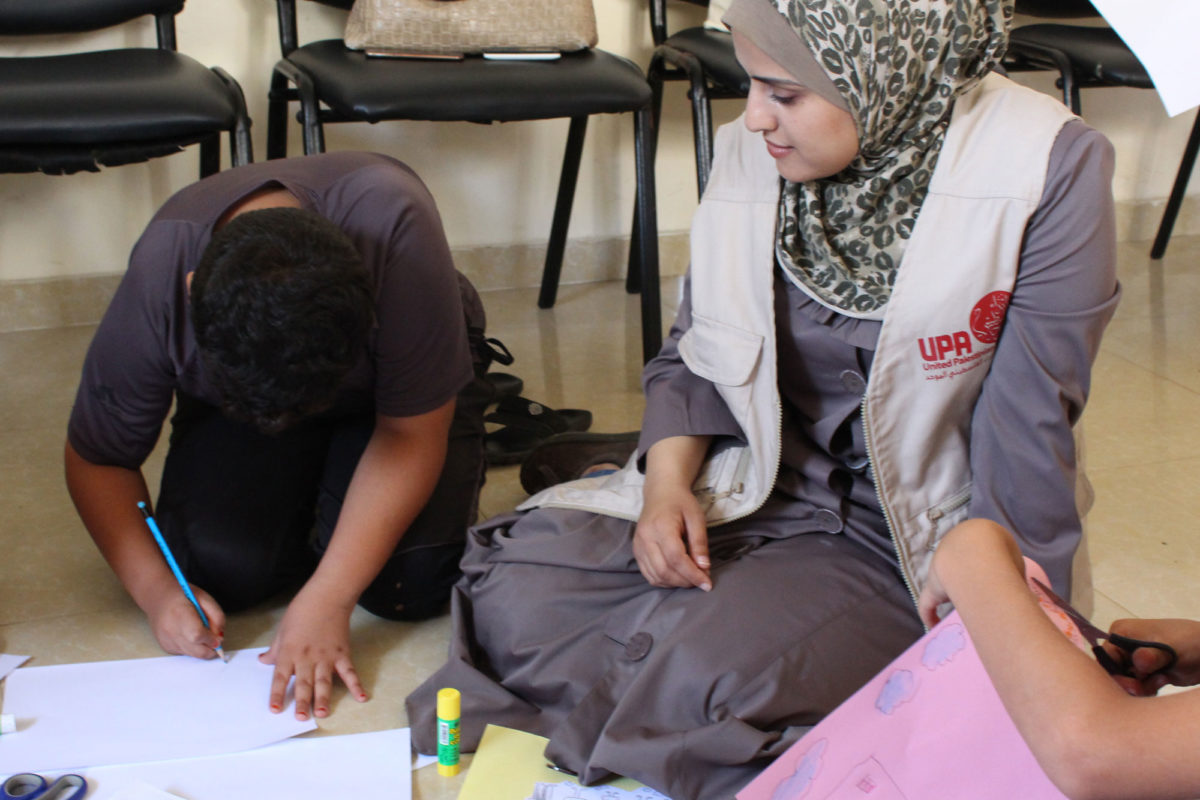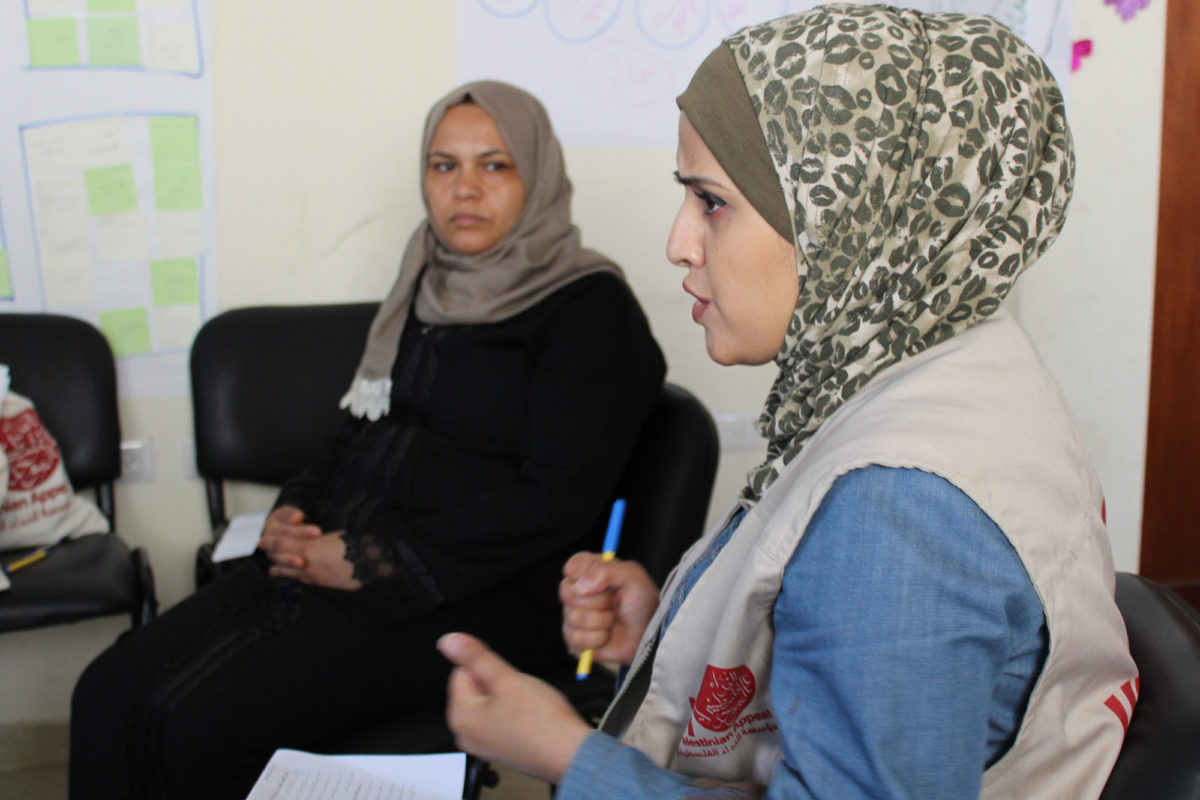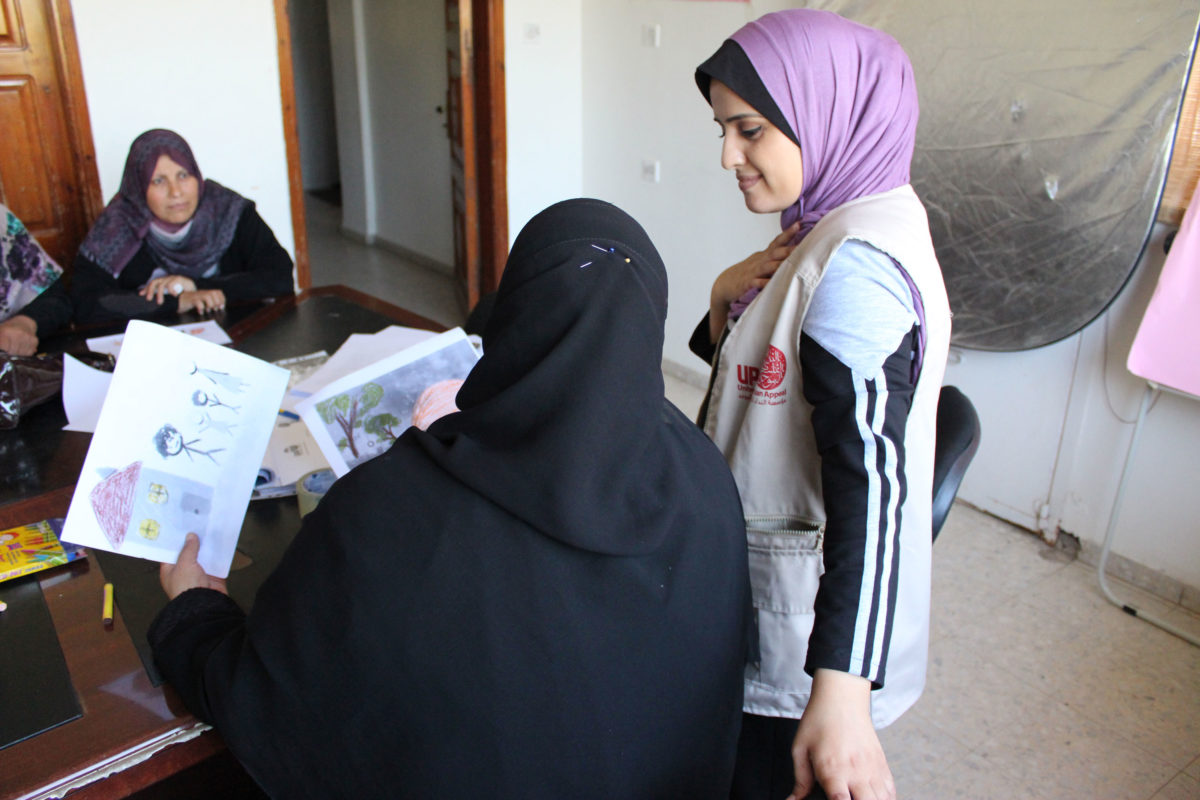Gaza’s exposure to years of trauma is taking a toll
Today, Gaza continues to be in the headlines as Palestinians continue to live life within the confines of a blockade. Earlier this year, during the Great March of Return, the Gaza medical sector declared a state of emergency and UPA leapt into action, providing medical supplies and renovating hospital storage spaces to expand recovery rooms capacity.
UPA staff includes Mental Health Practitioners. While working to implement the program, they also prepared a contingency plan—ready to help their community deal with the ongoing violence.
Palestinians in Gaza live in conflict zones and yet they manage to remain resilient and hopeful. We recently spoke with Islam Abou Helo, a mental health practitioner in UPA’s Healing Through Feeling program.
Islam recounted what it is like to work in a war-torn area like Gaza and how she stays motivated to help others in her community.
Read excerpts from her interview below:
- What is it like living in an area like Gaza? What is the average day like?
In Gaza, you can’t predict whether the next day is a war day or a calm day. You can’t guarantee your physical safety. The nation’s exposure to years of trauma is taking a toll. On an average day in Gaza, people go about their jobs without a sense of enjoyment. They have lost their ability to feel or live in the present moment. They are stuck living in a stressful state of mind.
- Why did you decide to become a mental health practitioner?
I wanted to become active in my community and to serve my country by using my skills and abilities. Also, living under the occupation for so long has made me yearn for freedom, both for myself and my nation. As a mental health practitioner, my desire for freedom motivates me to help people recover from the trauma they’ve faced for years.
- How do you keep your motivation during difficult times?
Attending group supervisory meetings helps me stay organized. This is considered an important step in staying strong and it allows me to distance myself from the difficulties I’m experiencing. These meetings with my colleagues taught me to always have an intervention plan to help our target groups, and that is empowering for me.
- Why is the mental health sector in Gaza often overlooked?
Mental health interventions, don’t often produce immediate results. Stigma also plays a role in the overlooked mental health sector in Gaza, although this has been slowly fading over the last 10 years. The shortage of qualified people in this sector contributes to how this field is overlooked. There is a lack of compelling voices talking about this issue.
You can support innovative programs that can make a lasting and meaningful impact on the lives of people like Islam and the thousands of other Palestinians whom we serve.
Thank you for your support these past 40 years.
With regard,
The UPA Team





